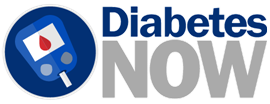Premier - Local Endocrinologist
-
Difference Between Type 1 and Type 2 Diabetes
People with type 1 diabetes don’t produce insulin. You can think of it as not having a key. People with type 2 diabetes don’t respond to insulin as well as they should and later in the disease often don’t make enough insulin. You can think of it as having a broken key.
-
Loading the player...
Understanding the Difference Between Type 1 and Type 2 Diabetes <p> Endocrinologist, creates a story based description on the differences between Type 1 and Type 2 Diabetes.</p>Endocrinologist, creates a story based description on the differences between Type 1 and Type 2 Diabetes.
-
What is the Prevalence of Diabetes?
Diabetes is becoming more prevalent for a number of reasons.First of all, there’s two types, two main types of diabetes. There’s type 1 diabetes, where individuals run out of insulin, and that tends to occur more in younger people.
First of all, to a certain degree it’s a disease of aging, the older you get the less insulin your body makes, and hence your blood sugars tend to drift up, but it’s also a disease of lifestyle.









